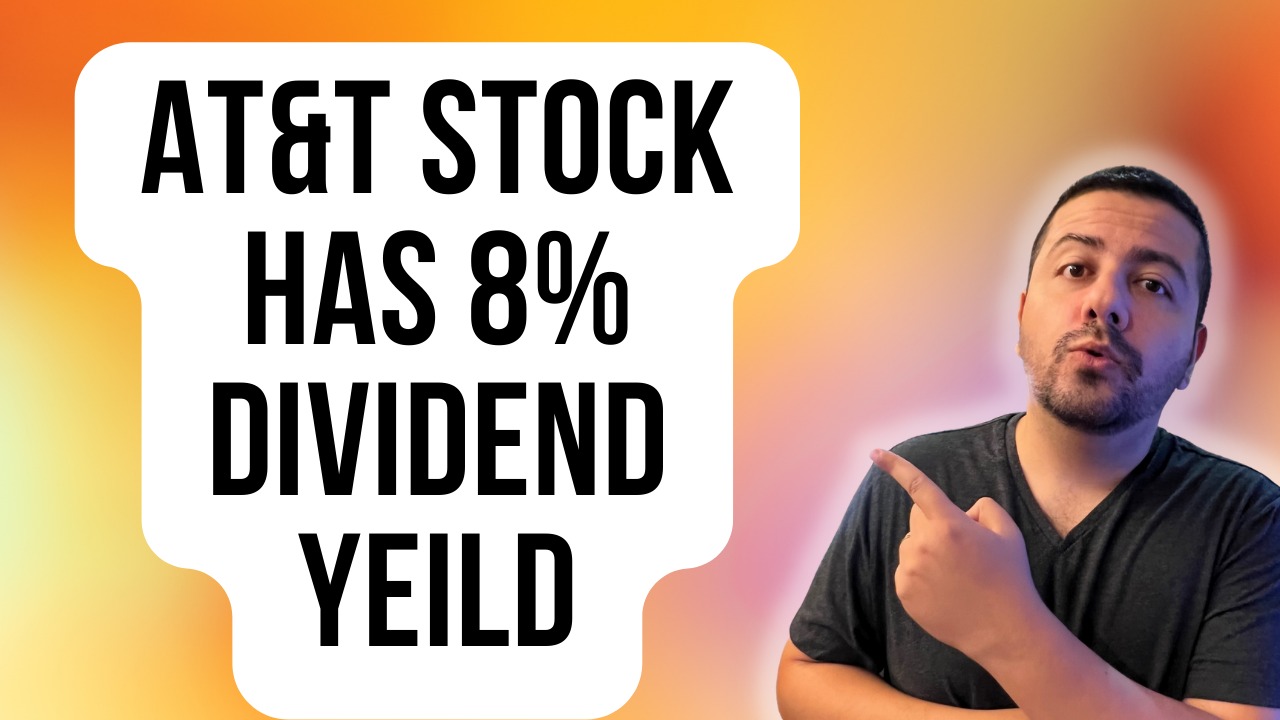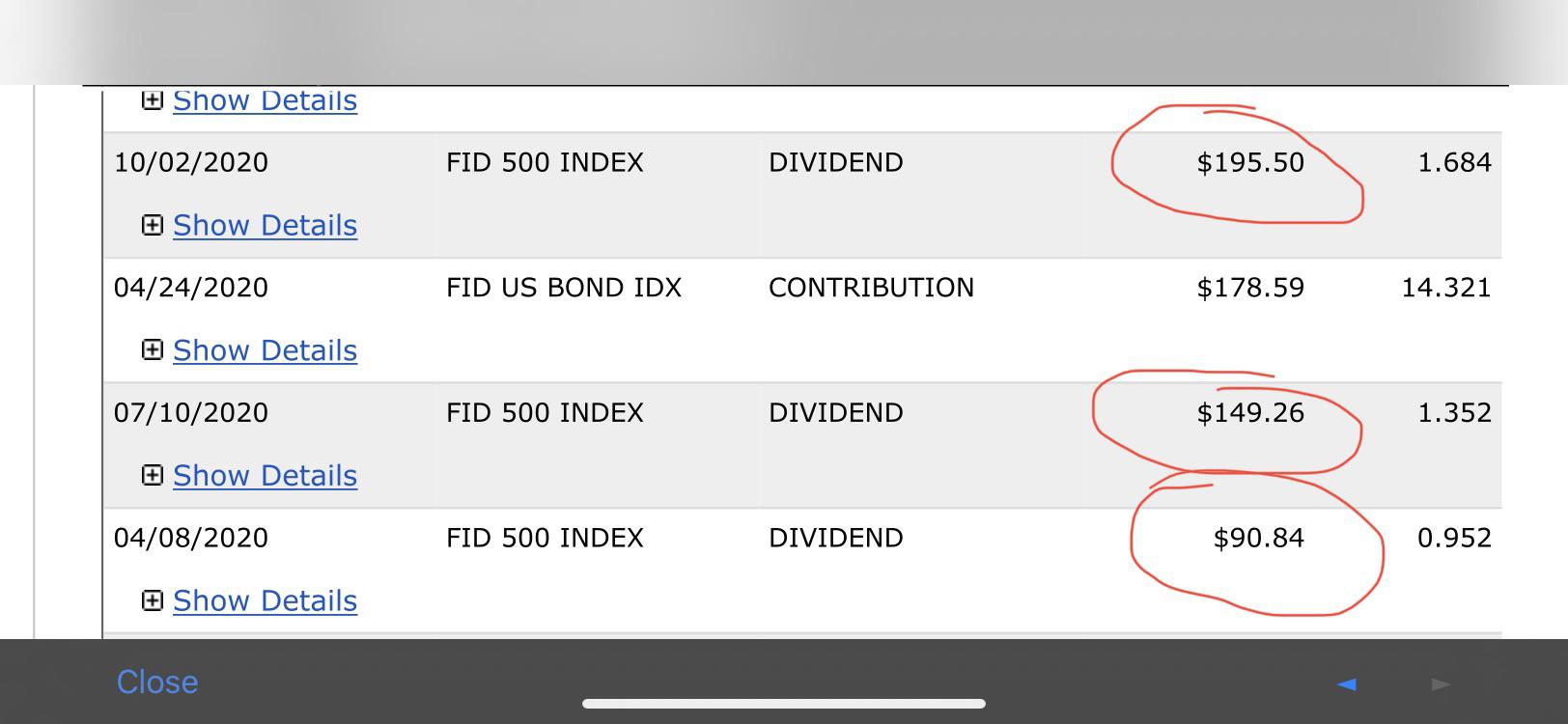

Finance
When Does AGNC Pay Dividends?
Published: January 3, 2024
Find out when AGNC pays dividends in this comprehensive finance guide. Stay informed on dividend payment dates and maximize your investment potential.
(Many of the links in this article redirect to a specific reviewed product. Your purchase of these products through affiliate links helps to generate commission for LiveWell, at no extra cost. Learn more)
Table of Contents
Introduction
Welcome to our guide on understanding the dividend payment schedule of AGNC Investment Corp (AGNC). As an investor, having knowledge of when AGNC pays dividends can play a crucial role in managing your investment strategy and cash flow. AGNC is a real estate investment trust (REIT) that focuses on investing in mortgage-backed securities (MBS) and other related assets. They generate income through the interest payments received on these securities, which is then distributed to shareholders in the form of dividends.
Dividend payments are a significant factor to consider when investing in AGNC or any other company. They are a portion of the company’s profits that are distributed to shareholders on a regular basis. Dividends not only provide investors with a potential source of steady income, but they also serve as an indicator of the company’s financial performance and stability.
In this article, we will dive into the details of AGNC’s dividend payment schedule, including the key dates and factors that determine when and how much AGNC pays in dividends. We will also explore the tax implications of receiving dividend payments from AGNC. Whether you are a current AGNC shareholder or considering investing in the company, understanding the dividend payment schedule can help you make informed financial decisions.
Understanding AGNC
Before delving into AGNC’s dividend payment schedule, it’s essential to have a basic understanding of the company and how it operates. AGNC Investment Corp is a real estate investment trust (REIT) that primarily invests in mortgage-backed securities (MBS) and other related assets. The company’s primary goal is to generate income by investing in agency MBS guaranteed by the U.S. government, which helps mitigate credit risk.
AGNC operates in the mortgage industry, taking advantage of the spread between the interest earned on their MBS investments and the short-term borrowing costs they incur to finance those investments. By borrowing at short-term rates and investing in longer-term mortgage securities, AGNC seeks to generate a favorable income margin.
The company’s investment strategy involves actively managing its portfolio of MBS to maximize returns while carefully monitoring interest rate risks. AGNC’s management team assesses market conditions and adjusts the portfolio holdings accordingly in order to optimize performance.
As a REIT, AGNC is required to distribute a significant portion of its taxable income to shareholders through dividend payments. This allows the company to maintain its tax-advantaged status, while providing investors with a potentially attractive source of regular income.
It’s worth noting that investing in AGNC involves risks, particularly those associated with changes in interest rates, the performance of the housing market, and general economic conditions. Before investing, it’s advisable to thoroughly research AGNC’s financials, market trends, and risk factors to make an informed investment decision.
Dividend Payments
Dividend payments are a key component of investing in AGNC or any other stock. They are a way for companies to distribute a portion of their profits to shareholders as a return on their investment. AGNC typically pays its dividends on a quarterly basis, although the specific amount and frequency can vary depending on the company’s financial performance and board of directors’ decisions.
The dividend payment amount is determined by AGNC’s management team and is subject to various factors, including the company’s earnings, cash flow, and dividend policy. The goal is to strike a balance between providing shareholders with a consistent income stream and retaining enough earnings for future growth and investment opportunities.
When AGNC pays dividends, shareholders can choose to either receive the payment in cash or reinvest it through a dividend reinvestment program (DRIP). With a DRIP, shareholders have the option to automatically reinvest their dividends into additional shares of AGNC stock, potentially increasing their ownership stake in the company over time.
It’s important to note that dividend payments are not guaranteed, and AGNC can choose to increase, decrease, or even suspend its dividend payments based on various factors such as market conditions, regulatory constraints, or changes in the company’s financial situation. Therefore, it is crucial for investors to continuously monitor AGNC’s financial performance and dividend policies to make informed investment decisions.
Furthermore, it’s worth mentioning that investing in dividend-paying stocks like AGNC can be appealing to income-focused investors, as these stocks can provide a consistent income stream even during periods of market volatility or economic downturns. Dividend income can help supplement other sources of income and contribute to long-term wealth accumulation.
In the next sections, we will discuss the key dates and factors that determine when dividends are paid, and how as an investor, you can benefit from understanding and tracking these dividend payment schedules.
Determining Dividend Dates
Dividend payments are not randomly distributed throughout the year. Instead, they follow a specific schedule with three key dates: the record date, the ex-dividend date, and the payment date. Understanding these dates is crucial for investors to know when they are eligible to receive dividends and plan their investment strategy accordingly.
Record Date
The record date is the date on which a shareholder must be on the company’s books in order to be eligible to receive the dividend payment. In other words, you must own the stock before the record date to be entitled to the dividend. The purpose of the record date is to establish a cut-off point for determining which shareholders will receive the upcoming dividend. It is important to note that owning the stock on the record date does not guarantee that you will receive the dividend if you sell the stock before the payment date.
Ex-Dividend Date
The ex-dividend date is the date on which a stock begins trading without the dividend included in its price. If you purchase the stock on or after the ex-dividend date, you will not receive the upcoming dividend payment. This is because stock trades typically take two days to settle, and anyone who purchases the stock on or after the ex-dividend date will not be listed on the company’s books in time for the record date. The ex-dividend date is determined by the stock exchange and is usually one business day before the record date.
Payment Date
The payment date is the date on which the dividend payment is made to eligible shareholders. It is the day when investors receive the actual cash payment or see the reinvested dividends reflected in their brokerage accounts. The payment date is determined by AGNC and is usually a few weeks after the record date. AGNC aims to distribute dividends in a timely manner to its shareholders.
By understanding and tracking these dividend dates, investors can plan their purchases and sales accordingly to maximize their dividend payments. It’s important to stay updated on any dividend announcements or changes made by AGNC and consult with a financial advisor if needed to ensure your investment strategy aligns with your financial goals.
Record Date
The record date is a crucial date in determining eligibility for receiving dividends. It is the cutoff date set by AGNC Investment Corp (AGNC) to determine which shareholders will be entitled to receive the upcoming dividend payment. The record date, also known as the “date of record,” is established by AGNC’s board of directors and is typically a few days after the ex-dividend date.
To be eligible for the dividend, shareholders must own the stock and have their names registered in AGNC’s records on or before the record date. AGNC maintains a list of shareholders who are entitled to receive dividends based on their ownership on the record date. This list is crucial for the company to ensure accurate distribution of dividends to eligible shareholders.
If you purchase AGNC stock on or after the record date, you will not be considered a shareholder of record for that particular dividend payment. This means that even if you hold the stock on the ex-dividend date or the payment date, you will not receive the dividend. On the other hand, if you sell your AGNC shares before the record date, you will not be entitled to the dividend payment.
It’s worth noting that the record date is specific to AGNC and is determined by the company’s management. Different companies may have different record dates, and they can vary from dividend to dividend. It is important to stay informed about AGNC’s dividend announcements and record dates in order to plan your investment strategy accordingly.
For investors considering purchasing AGNC stock, it’s important to be aware of the time required for a share purchase to settle. It typically takes two business days for a stock trade to settle, meaning that if you want to be considered a shareholder of record on the record date, you need to complete your purchase at least two business days before the record date.
Understanding the significance of the record date is essential for investors to ensure they meet the eligibility requirements for receiving dividends. By keeping track of AGNC’s dividend announcements and record dates, investors can plan their investment strategies accordingly and maximize their potential dividend income.
Ex-Dividend Date
The ex-dividend date is a key date for investors to be aware of when it comes to dividend payments. It is the date on which a stock begins trading without the dividend value included. In other words, if you purchase the stock on or after the ex-dividend date, you will not be eligible to receive the upcoming dividend payment.
The ex-dividend date is established by the stock exchange, typically one business day before the record date. It serves as a clear indication to investors that if they buy the stock on or after the ex-dividend date, they will not be entitled to the dividend for the current payment period. Conversely, if you own the stock before the ex-dividend date and hold it through the ex-dividend date, you will be eligible to receive the dividend.
One important thing to note is that the ex-dividend date is set by the stock exchange to ensure that all trades settle before the record date. Stock trades generally take two business days to settle, so the ex-dividend date is typically two business days before the record date to allow sufficient time for the trade to settle and for the buyer to be officially registered as a shareholder of record on the record date.
For example, if AGNC Investment Corp (AGNC) announces a dividend with a record date of March 15th, the ex-dividend date would typically be set as March 13th. This means that if you purchase AGNC stock on March 13th or later, you would not be entitled to the dividend for that payment period. However, if you purchased the stock prior to the ex-dividend date (e.g., on March 12th), you would still be eligible to receive the dividend.
It’s important for investors to be aware of the ex-dividend date when considering buying or selling AGNC stock. Those looking to receive the dividend need to ensure they purchase the stock before the ex-dividend date, allowing sufficient time for the trade to settle. On the other hand, if an investor is not concerned about receiving the current dividend payment, they may choose to purchase the stock on or after the ex-dividend date.
Understanding the ex-dividend date is crucial to avoid any confusion or disappointment regarding dividend eligibility. By staying informed about AGNC’s dividend announcements and ex-dividend dates, investors can make informed decisions regarding their investment strategies and maximize their potential dividend income.
Payment Date
The payment date is the highly anticipated date when AGNC Investment Corp (AGNC) distributes the dividend payments to eligible shareholders. It is the day on which investors receive the actual cash payment or see the reinvested dividends reflected in their brokerage accounts.
The payment date is determined by AGNC’s board of directors and is typically set a few weeks after the record date. The specific payment date is announced alongside the dividend declaration. AGNC aims to distribute dividends in a timely manner to its shareholders, ensuring that they receive their rightful share of the company’s profits.
On the payment date, AGNC processes the dividend payments to eligible shareholders based on the records maintained by the company. If you are enrolled in a dividend reinvestment program (DRIP), the payment date is when your dividends are reinvested automatically to purchase additional shares of AGNC stock.
It is essential for investors to pay attention to the payment date, as this is when they can expect to receive the dividend income. The payment date provides clarity and certainty regarding the actual timing of the dividend payments, allowing investors to plan and allocate their funds accordingly.
When considering the payment date, it’s important to remember that there may be a slight delay in receiving the dividend payment, especially if the payment is made through a brokerage account. The timing of the payment may vary depending on the policies and processes of individual brokerage firms.
Investors should also be aware of any potential tax implications related to the dividend payment. Dividends are generally subject to taxation, and the payment date is the date on which the dividend income is considered received for tax purposes. It is advisable to consult with a tax professional or accountant to ensure compliance with tax regulations and to understand any tax obligations associated with dividend income.
By staying updated on AGNC’s dividend announcements and payment dates, investors can manage their cash flow and make informed financial decisions. The payment date is an exciting milestone for shareholders, as it represents the tangible realization of their investment returns and can contribute to achieving their financial goals.
Factors Affecting Dividend Payments
AGNC Investment Corp (AGNC) is committed to delivering consistent dividend payments to its shareholders. However, several factors can impact the amount and frequency of dividend payments. Understanding these factors can provide insight into the dynamics that influence AGNC’s dividend policy.
Earnings and Cash Flow
The primary factor that determines AGNC’s ability to pay dividends is its earnings and cash flow. AGNC generates income from its investments in mortgage-backed securities (MBS), with the interest earned on these securities forming a significant portion of its revenue. Stable and robust earnings contribute to a steady dividend payout, while fluctuations in earnings can influence the dividend amount or even result in a suspension of dividend payments.
Financial Performance
The overall financial performance of AGNC is a critical consideration in dividend payments. The company’s profitability, liquidity, and solvency are evaluated by its management team and board of directors when determining dividend distributions. If AGNC faces challenges, such as a decline in portfolio performance or an adverse impact on its financials, it may result in a reduction or temporary halt in dividend payments.
Market Conditions
Market conditions play a significant role in dividend payments. Factors such as interest rate fluctuations, economic uncertainties, and housing market trends can impact AGNC’s investment portfolio and overall financial health. For example, a steep decline in interest rates may decrease the profitability of AGNC’s mortgage investments, affecting its ability to generate sufficient earnings for dividend payments.
Regulatory Constraints
As a real estate investment trust (REIT), AGNC must adhere to specific regulatory requirements to maintain its favorable tax status. REITs are required to distribute a substantial portion of their taxable income as dividends to shareholders. AGNC’s dividend payments must comply with the rules and regulations governing REITs, and any changes in these regulations or tax laws can have implications on dividend distributions.
Dividend Policy
AGNC’s dividend policy is another factor that affects dividend payments. The company’s management team and board of directors set the policy, considering various factors such as earnings growth, capital requirements, and shareholder expectations. AGNC may choose to adopt a conservative dividend policy, which results in lower but more stable dividend payments, or a more aggressive policy with higher but potentially more variable dividends.
It’s important to note that while dividend payments are a significant consideration for investors, they are not guaranteed. AGNC’s dividend policy is subject to change based on internal and external factors, as determined by the management team and the board of directors. Therefore, investors should continuously monitor AGNC’s financial performance and dividend policy to make informed investment decisions.
Tax Implications
Dividend payments from AGNC Investment Corp (AGNC) have important tax implications for shareholders. Understanding these tax considerations is essential for effectively managing your investment strategy and complying with tax regulations. Here are some key points to keep in mind:
Taxable Income
Dividends received from AGNC are generally considered taxable income. As a real estate investment trust (REIT), AGNC is required to distribute a significant portion of its taxable income to shareholders. These dividend payments are taxed at the individual shareholder’s applicable income tax rate.
Qualified Dividends vs. Ordinary Dividends
AGNC’s dividends may be classified as either qualified dividends or ordinary dividends for tax purposes. Qualified dividends are typically taxed at a lower rate similar to long-term capital gains, while ordinary dividends are taxed at the shareholder’s ordinary income tax rate.
Dividend Tax Rates
The tax rates applicable to qualified dividends are generally lower than those for ordinary income. The specific tax rates depend on the shareholder’s income level and tax filing status. It’s important to consult with a tax professional or refer to the latest tax regulations to determine the tax rates applicable to your dividend income.
Withholding Taxes for Non-U.S. Shareholders
For non-U.S. shareholders, AGNC may be required to withhold taxes on dividend payments, as per U.S. tax regulations. The amount withheld depends on the applicable tax treaty between the shareholder’s country of residence and the United States. Non-U.S. shareholders should consult their local tax advisors to understand the withholding tax obligations and potential tax credits or exemptions available to them.
Reporting Dividend Income
AGNC will issue Form 1099-DIV to shareholders, reporting the dividend income received during the tax year. Shareholders are required to include this information when filing their annual income tax returns. It’s important to accurately report dividend income to ensure compliance with tax regulations.
Consulting with a Tax Professional
Given the complexity of tax laws and individual circumstances, it’s advisable to consult with a tax professional or accountant to navigate the tax implications of AGNC’s dividend payments. They can provide personalized advice based on your specific tax situation and help optimize your tax strategy.
Understanding the tax implications of AGNC’s dividend payments is crucial for managing your investment portfolio and fulfilling your tax obligations. By staying informed and seeking appropriate professional guidance, you can optimize your tax strategy while maximizing the benefits of investing in AGNC.
Conclusion
Understanding the dividend payment schedule of AGNC Investment Corp (AGNC) is vital for investors seeking to maximize their investment returns and effectively manage their cash flow. Dividend payments from AGNC provide a potential source of steady income, and knowing when these payments occur can help investors plan their financial strategies accordingly.
In this guide, we explored the key dates that determine AGNC’s dividend payment schedule. The record date is the date by which shareholders must be listed on AGNC’s records to be eligible for the dividend. The ex-dividend date is the date when a stock trades without the dividend included, and purchasing the stock on or after this date makes an investor ineligible for the current dividend. The payment date is when the actual dividend payment or reinvestment occurs.
We also discussed several factors that can affect AGNC’s dividend payments, including earnings and cash flow, financial performance, market conditions, regulatory constraints, and the company’s dividend policy. These factors influence the amount and frequency of dividend distributions, and investors should keep track of AGNC’s financial updates and announcements to stay informed about potential changes in dividend payments.
Lastly, we touched upon the tax implications of AGNC’s dividend payments. Dividends are generally considered taxable income, and shareholders may be subject to different tax rates based on the classification of the dividends as qualified or ordinary. Non-U.S. shareholders may also have specific withholding tax obligations. Seeking advice from a tax professional can ensure proper reporting and compliance with tax regulations.
As an investor, staying informed about AGNC’s dividend payment schedule, understanding the factors influencing dividend distributions, and being aware of tax implications can help you make informed investment decisions and effectively manage your investment portfolio.
Remember, dividend payments are subject to various factors and are not guaranteed. It is prudent to conduct thorough research, review AGNC’s financial performance, and consult with financial professionals to make well-informed investment choices.
By keeping an eye on AGNC’s dividend schedule and incorporating it into your overall investment strategy, you can potentially benefit from the steady income and long-term growth opportunities that come with investing in AGNC.














